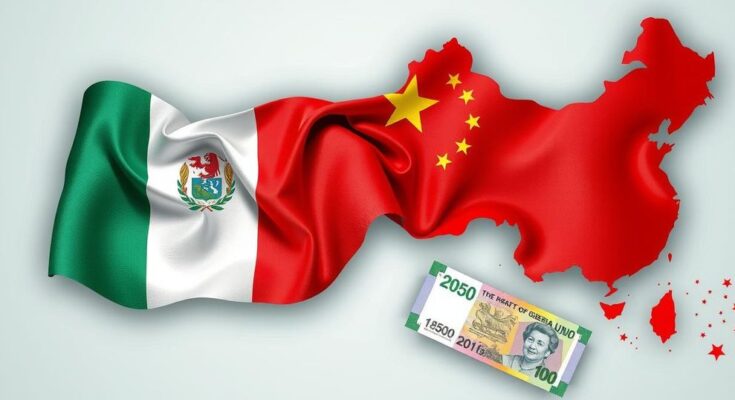A recent currency swap deal between Nigeria and China may jeopardize Nigeria’s participation in the Africa Continental Free Trade Area (AfCFTA), according to the Sea Empowerment Research Centre. The group warns that the agreement could increase reliance on the Chinese yuan and intensify competition for local businesses, undermining the goals of the AfCFTA of promoting intra-African trade and reducing dependency on foreign currencies.
The Sea Empowerment Research Centre has expressed concerns regarding the recent currency swap agreement between Nigeria and China, warning that it may hinder Nigeria’s involvement in the Africa Continental Free Trade Area (AfCFTA). According to the group’s head, Mr. Eugene Nweke, the deal, valued at 15 billion yuan ($2 billion), is set to increase Nigeria’s reliance on the Chinese yuan, thus limiting its capacity to engage fully with the AfCFTA’s objectives.
The agreement, aimed at boosting trade and investment between the two nations, is expected to promote the use of the yuan and naira in bilateral transactions, while also reducing reliance on foreign currencies like the US dollar. However, Nweke highlights that such a focus on Sino-Nigerian commerce could detract from broader intra-African trade and economic integration, which is a vital goal of the AfCFTA.
Furthermore, Nweke cautioned that the currency deal could create an imbalance favoring Chinese goods in the Nigerian market, intensifying competition for local businesses. He maintained that the agreement fails to address existing tariff and non-tariff barriers with other African nations, which the AfCFTA seeks to eliminate.
Given Nigeria’s current trade deficit with China, where imports significantly outstrip exports, Nweke fears that this arrangement may precipitate a substantial outflow of foreign exchange and stress Nigeria’s external reserves. He noted that if the naira depreciates against the yuan, it could render Nigerian exports less competitive in the Chinese market.
While acknowledging that this swap would enhance trade and investment between Nigeria and China, accounting for a significant portion of Nigeria’s total trade, he concluded that the deal’s ultimate impact on intra-African trade remains uncertain.
The Africa Continental Free Trade Area (AfCFTA) was established to promote economic integration and reduce dependency on foreign currencies across African nations. The recent renewal of a currency swap agreement between Nigeria and China raises significant questions about its implications for trade dynamics in Africa. The arrangement seeks to reduce reliance on the US dollar and enhance direct trade between Nigeria and China. However, experts like Mr. Eugene Nweke warn that such agreements may complicate Nigeria’s ability to engage effectively in the AfCFTA framework, especially in terms of promoting the use of local African currencies for trade within the continent.
The currency swap agreement between Nigeria and China presents potential risks to Nigeria’s role in the AfCFTA, as it may exacerbate reliance on the Chinese yuan and hinder broader intra-African trade efforts. If Nigeria’s economic ties to China deepen through this deal, it may divert attention from essential initiatives aimed at strengthening African economic integration. Nweke’s insights indicate that while the deal may facilitate bilateral trade, it also poses challenges for Nigerian businesses and the overall objectives of the AfCFTA.
Original Source: punchng.com




